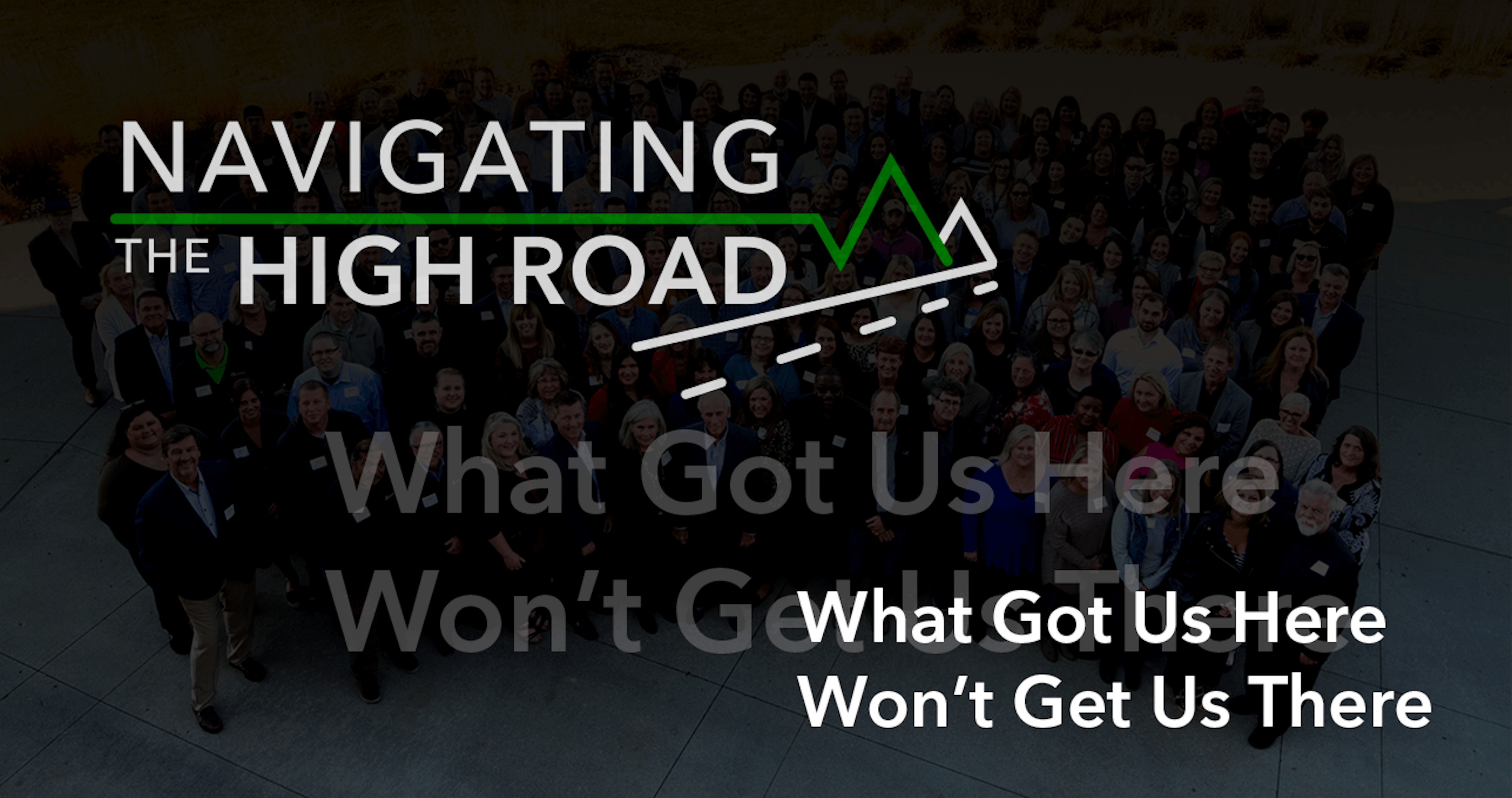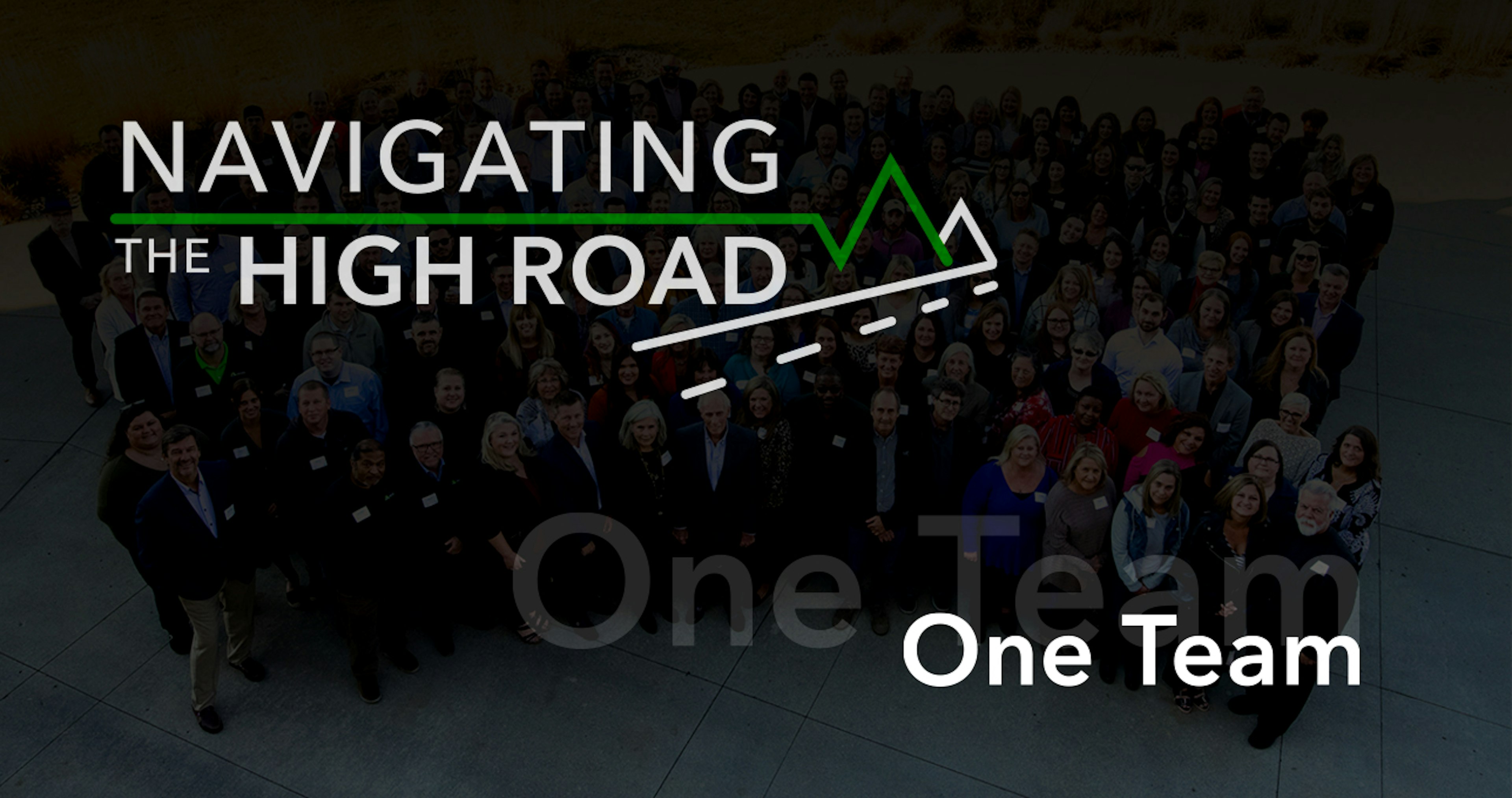What Got Us Here Won’t Get Us There: An Eye on the Future

By Martin Kuhn, President of Mike Albert Fleet Solutions
At Mike Albert, we spend a lot of time thinking about, talking about, and living our company values. In this series, Navigating the High Road, senior leaders from our company explore our core values, why they are important, and how we instill them in our corporate culture.
Even before I joined Mike Albert Fleet Solutions in 2022, I was never one to simply accept the status quo. My professional background in financial technology demanded a fast pace and a “disrupter” mindset; I’ve always been focused on asking hard questions, solving problems, and finding ways to improve operations or streamline processes.
Making the move from fintech to a fleet management and mobility solutions company might not seem the most intuitive career change, but it makes a little more sense once you learn that one of Mike Albert’s core values is “What Got Us Here Won’t Get Us There.” Mike Albert has enjoyed considerable success for more than 60 years, growing from a used car dealership to a multimillion-dollar mobility business serving clients nationwide—but we recognize that what may have worked for our business forty years ago, or even five, likely won’t be the right approach for today.
We’re committed to keeping the momentum going. Here’s how.
Never settle.
This is perhaps my biggest mantra. If you want to grow and improve personally, professionally, or as an organization, it’s essential to get into uncomfortable situations. Inertia is a powerful force; it’s also the enemy of innovation and growth. Sometimes, you need to be nudged outside of your comfort zone.
To that end, I’m a big believer in making people “sweat” a little bit, whether that means tasking them with leading new projects or interfacing with teams that are different from their own. Take a person who has been working on the client side for over a decade and move them over to the operations side, and I guarantee that a lot of learning and growth will happen. That individual will become more adaptable, gain a more nuanced understanding of the business and be more well-versed and confident in a wider variety of topics—making them more valuable to the team.
Question everything.
Over the course of my career, I’ve learned that asking questions is one of the most valuable ways to identify problems or opportunities, especially in organizations that have been operating for years. I’ve also realized that if your answer to “Why?” is “That’s the way we’ve always done it”—you have a lot of work to do.
Many people subscribe to the idea of “If it isn’t broke, don’t fix it.” I am not one of those people, and don’t want our associates to get complacent, either. I’ve asked a lot of questions in my first year at Mike Albert, about everything from product launches to how we vet our clients. “Why is this process set up the way that it is?” “Why do our clients prioritize X over Y?” “Why did we decide to introduce this product at this time?”
I’m not here to question the output but the reasoning and purpose behind it. Understanding the why behind our decision-making allows me to isolate what’s been working and what hasn’t—and develop a plan that gets us where we need to go.
Prioritize accountability & measurement.
Growth and success require accountability, which is already a huge part of the culture here at Mike Albert—one of our other corporate values that guides our work is “Own It.” As a leader, I never let anyone use people, processes, or systems as a reason not to execute. I’m not a micro-manager by any means; if you need to send emails from your kids’ tee-ball games or work from the golf course, more power to you. What I do care about is that each associate is accountable for their work, their deadlines, and the satisfaction of our clients.
On the flip side, holding people accountable also demands that I, as a leader, must set expectations and define what “success” looks like. To drive accountability from my team, I need to establish clear goals for our associates and measure against those. I can’t expect my associates to strive for success if they don’t have a clear understanding of what that means for them, for our clients, and for our organization.
Empower decision-making.
Driving accountability is important, but I also can’t expect my team to drive innovation and growth if I don’t give them the power to make decisions and act on them. I might be the leader of this organization, but I don’t want to be the smartest person in the room. To be honest, no leader should want that. We have an incredible team of associates; these people are the ones doing the real, tangible work—and ultimately, they should feel empowered and supported in driving the future of our organization. As a leader, I have to consider: How can I ensure that our associates feel empowered to make business decisions and execute on their expertise? What tools or processes can I put into place to make that possible? What obstacles can I eliminate so they can perform to their fullest potential? That’s what I’ve been focused on since joining Mike Albert: shifting the paradigm. We’ve provided our teams with approval hierarchies and decision-making thresholds that allow them to make decisions and modify processes that will grow our business and deliver the best experience to our customers.
When it comes to reaching our goals and growing as a company, the status quo simply won’t cut it. Consistently asking questions, evaluating our approach, and adapting our systems and processes—that’s what will get us there.


